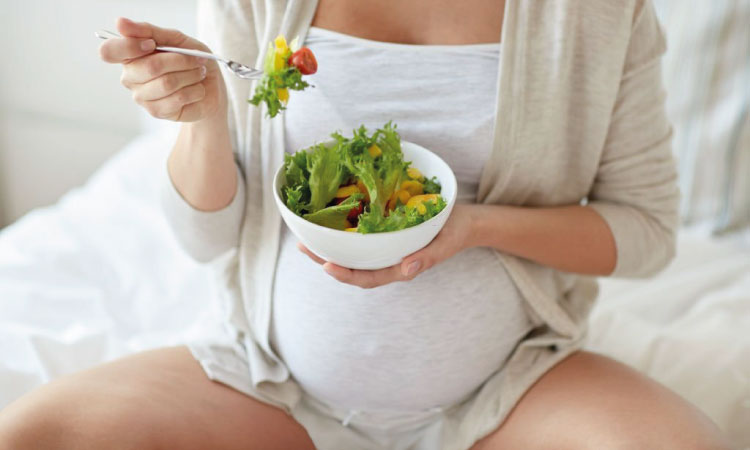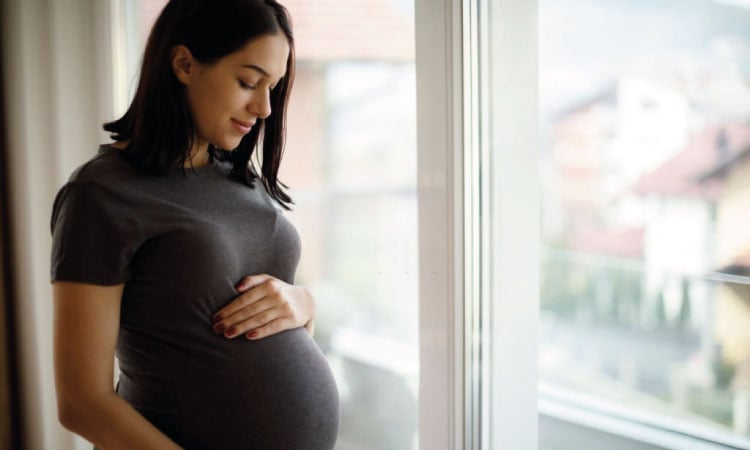Pregnancy is the most precarious phase of a woman’s life. It puts a lot of pressure on the woman’s body. The fetus developing inside the womb needs adequate nutrients for proper growth and development. Most of these are derived from the mother’s body. There are a number of issues faced by women during pregnancy but fatigue during pregnancy is one of the most common ones.
The pregnant woman is seen to be tired and lazy at the beginning only. This is due to hormonal changes; this fatigue however starts to disappear in the second leg of pregnancy and resumes in the last phase again. It is particularly important to understand how to overcome tiredness during pregnancy to stay healthy and have a smooth pregnancy. The best way to face pregnancy fatigue is to have a nutrient-rich healthy diet.
Why Does Pregnancy Make You So Tired?
It is common to experience tiredness during pregnancy and the fatigue levels are different for the three stages. The reasons for fatigue levels to vary are different in every stage. Let us try and understand each stage.
First Trimester- The onset of pregnancy shows a lot of reasons that can result in fatigue and tiredness. A few of them are listed as under1:
- There is a surge in the progesterone levels in the body resulting in drowsiness and tiredness
- The morning sickness, a drop in the levels of the blood pressure and blood sugar can result in tiredness as well
- Due to an increase in the heartbeat and lack of sleep, tiredness is bound to happen
- The development of the placenta leads to an increase in the different resources of the body for the growth of the cellular structure and the blood supply network
Related Reading: How To Cope With Extreme Tiredness In Early Pregnancy
Second Trimester- The fatigue levels start disappearing after the first trimester making it easier for the pregnant lady, which is not the actual case. This is even referred to as the “Happy trimester” and this is the time when the expectant mothers use it in finishing the important chores. Few women do get relief for a while but after that, there are other sets of changes that can result in tiredness. A couple of them are listed as under2:
- Lack of sleep due to the baby bump results in tiredness
- Frequent toilet visits due to the increased pressure on the urinary bladder
Related Reading: The Top 10 Precautions To Take In The Second Trimester Of Pregnancy
Third Trimester– The last leg of pregnancy is the most discomforting one as the baby bump is clearly visible. The additional weight of the baby results in improper sleep, untimely visits to the restroom, exhaustion, and a lot of discomforts. Apart from this some other reasons attributed to tiredness during the third trimester are as follows3:
Calculate Due Date With LMP
- Iron deficiency can lead to less energy and more tiredness
- Depression of changing body types and not being able to do many things in a proper manner
- The anxiety of labor and the baby
- Hormonal changes that take place can even result in tiredness
- Lack of proper diet is yet another cause of tiredness
- Sleep disturbances due to the belly and not finding a comfortable spot while sleeping is also a troublesome one
- Abdominal Achiness is common due to the increase in belly size
- Backache due to the increased weight causes tiredness
- Shortness of breath due to low energy levels results in tiredness
- Swelling in the legs causes the expectant mother to walk slowly and not be extremely comfortable
- Leg cramps, fetal movements, heartburn, and shortness of breath increase as the expanding uterus puts pressure on the organs to position it properly
Related Reading: 8 Tips To Cope With Anxiety During Pregnancy Third Trimester
9 Ways To Overcome Tiredness During Pregnancy

Fatigue is of several types and can result in discomfort during pregnancy. A few ways how to overcome tiredness during pregnancy are given as under. Following this helps in a smoother journey of pregnancy.
1. Cut down on spicy food4
- Cutting down on spicy foods is helpful as it cuts down the burning sensation in the stomach
- Having a nutritious option like dried fruit and nuts, salads or slices of low-fat cheese, and whole wheat bread help in improving health and even offer balanced nutrition to the body
2. Proper rest and sleep5
- Having small breaks throughout the day helps to stay healthy
- It is advisable to go for small naps
- It is good to sit while keeping the feet high and sleep early and not too late
- Not only the quantity but the quality of sleep is important as well. It is better to sleep on the left side
- Few expectant mothers also prefer to keep a pillow between the legs and keep the legs and knees bent
- Take proper rest by listening to soothing music, meditation, or soaking in a bath
3. Staying hydrated
- It is recommended to have an adequate water intake but avoids taking it right before sleeping to avoid getting up frequently for urination6
- Have fruits with high water content and freshly prepared juices
- It has been found that dehydration during pregnancy is a leading cause of fatigue
- Make sure to drink no less than eight glasses of water daily and opt for fresh juices whenever possible
4. Having a healthy and nutritious meal

- Having small portions of healthy meals is advisable as it helps with digestion and controls nausea as well
- It is better to have five to six meals rather than three big meals
- Having light meals is easy to digest
- A diet rich in carbs and proteins helps in stabilizing the energy levels and the blood sugar as well
- It is also important to have a diet rich in iron as exhaustion is also due to its deficiency
Related Reading: 21 Pregnancy Superfoods To Include In Your Pregnancy Diet
5. Avoid caffeine and sweets7
- Caffeine and sugar can cause the metabolism to slow down, making you feel sluggish, thus it’s better to avoid caffeinated drinks during pregnancy
- Choosing juice that is rich in vitamin C and proteins would be a better option
- There is no doubt that caffeine can provide an energy boost, but if you consume caffeine post-meals, it may interfere with your sleep
- The recommended amount of caffeine per day is about two cups of coffee (about 200 milligrams). However, it is better to avoid it to avoid sleep disturbances, which may lead to fatigue. For more information on how safe caffeine is for you, speak with your healthcare provider
6. Prenatal vitamins should never be forgotten8
- Pregnancy is a time when prenatal vitamins are necessary as it offers an additional boost
- Vitamins should however have adequate iron levels and vitamin B12
7. Avoid alcohol9
- Consuming alcohol can increase fatigue levels
- Doctors also do not recommend having alcohol as it leads to neural birth defects as well as miscarriage
Related Reading: Drinking Red Wine During Pregnancy- Pros And Cons
8. Exercise regularly
- Keeping fit or exercising during pregnancy is an effective way to keep the energy levels high and keep the weariness away10
- It is one’s choice to opt for walking, Pilates, or yoga. It is best to consult a doctor about what is best for the expectant mother
9. Choose healthy lifestyle
- Women who are pregnant should have daytime meetings rather than late-night ones
- Getting enough sleep and rest is even more important
- Do not burden or stress due to extra work and not pick up new assignments
- Go easy and listen to your body
Conclusion

Thus, fatigue is a common issue during pregnancy yet not harmful to the growing fetus. It is best to let the health practitioner know about the tiredness so that adequate measures can be advised during the prenatal visits. It is important to know how to overcome tiredness during pregnancy. It is vital to pamper oneself, relax and take proper rest. It is also advisable to take help when required by friends and family in the daily activities to keep the stress at bay. It is best to not get overworked and have a smooth pregnancy.
FAQs
Fatigue starts with the onset of pregnancy. Since all women are different, exhaustion for a few is one week after conception while for others a little later.
The fatigue levels are lesser in the second trimester and resume in the third trimester. It is normal for the pregnant woman to always feel tired due to the physiological changes, hormonal changes, development of the placenta, mood swings, lack of sleep, etc.
To keep the tiredness away and combat pregnancy fatigue, one should adopt the following measures:
1) Take adequate rest and sleep
2) Avoid caffeine, sugar, and alcohol
3) Have foods rich in carbs, iron, and protein
4) Keep yourself hydrated and have fresh juices
5) Exercise regularly
6) Take smaller meals at intervals and not big ones
7) Do Aromatherapy
8) Indulge in a healthy lifestyle
9) Do not have water right before you sleep to avoid frequent urination throughout the night.
Fatigue and tiredness are the most common and the very first symptoms of pregnancy. The symptoms usually subside by the second trimester of pregnancy and resume in the third trimester again.

